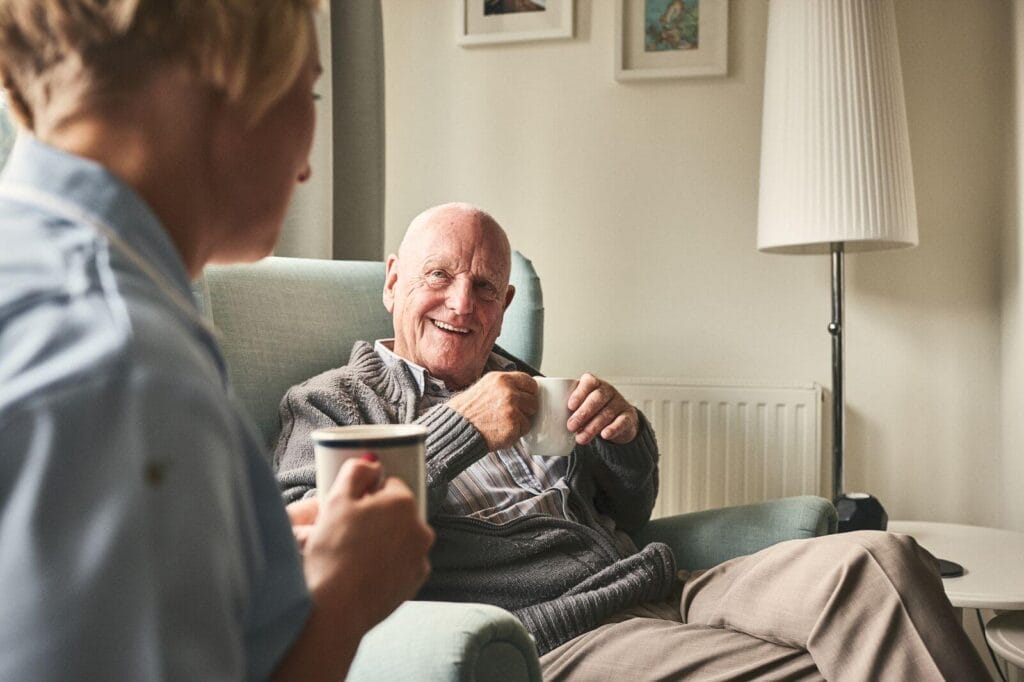
Many seniors want to remain in their homes for as long as possible. In-home companion care services can help these aging-in-place older adults live at home longer by helping them avoid social isolation and cope with physical limitations. They can also identify and resolve safety concerns, among other benefits.
Companion caregivers provide a wide range of services and support to help aging-in-place seniors lead active and fulfilling lives and empower seniors to thrive while living in their homes. Here, we’ll explore the many benefits of in-home companion care services.
Cognitive stimulation
With age can come some natural cognitive decline, making daily tasks such as managing medications or remembering appointments more challenging. These cognitive changes impact seniors’ ability to care for themselves and may affect their quality of life. Beyond typical cognitive decline, individuals with dementia experience more severe cognition and memory issues that require help from another person.
Companion care providers engage seniors in activities that stimulate their minds, such as playing games, reminiscing, doing arts and crafts, or listening to music. This cognitive stimulation can help improve memory, cognitive function, and overall mental well-being.
Emotional support
Many seniors who live alone may face social isolation, which can cause them to feel lonely or depressed. This lack of socialization can also impact their mental and emotional well-being as they become increasingly disconnected from the world around them.
Professional companions provide emotional support and companionship, improving a senior’s emotional well-being. Having someone to talk to, share experiences with, and lean on during challenging times can significantly enhance an older adult’s quality of life.
Safety and security
Seniors living alone may be at risk for falls, accidents, or exploitation by scam artists who prey upon the aging. This constant fear for their safety can lead to anxiety, stress, and a reduced sense of security in their homes.
While serving as an extended family in the home, companion care providers can identify potential safety hazards, stock up on food and supplies, and be on the lookout for scam artists targeting vulnerable seniors. This added layer of protection can help clients feel safe, secure, and supported in their homes.
Light housekeeping
Mobility issues may make it difficult for seniors to perform essential tasks such as housekeeping, cooking, or laundry. This inability to get around can lead to feelings of frustration, helplessness, and a decreased sense of independence.
Senior companions can assist with light housekeeping tasks to ensure a clean and safe living environment. Their expertise can also help reduce the risk of accidents, falls, and injuries while promoting a heightened sense of order and comfort in the home.
Meal planning and preparation
Companion caregivers can plan nutritious meals, grocery shop, and assist with meal preparation to help seniors maintain a healthy diet. This support ensures that seniors are getting the proper nutrition they need and saves them time and energy, allowing them to focus on other aspects of their lives.
Friendly conversation
In-home companions provide socialization and engage seniors in conversation and activities, preventing social isolation. This personal engagement can help seniors feel connected, valued, and appreciated, promoting a sense of belonging and purpose.
Medication reminders
Companion care providers can give clients medication reminders, ensuring they take the right doses at the proper times. These reminders can help prevent missed doses, overdosing, or potentially dangerous drug interactions, promoting senior health and well-being.
Transportation
As seniors age, they may no longer be able to drive safely, making it difficult to go to appointments, run errands, or visit friends and family. Not having reliable transportation can lead to feelings of isolation and dependence on others for everyday tasks.
Professional companions can transport clients to appointments, errands, or social outings, helping them stay connected and independent. This transportation support allows seniors to maintain their social connections, access essential services, and engage in activities they enjoy.
Is companion care right for you?
Professional companion caregivers can step in and play a vital role in helping seniors live at home for longer. By delivering a wide range of services, including help around the home and emotional support, companion care providers enable aging-in-place clients to maintain their independence and quality of life.








